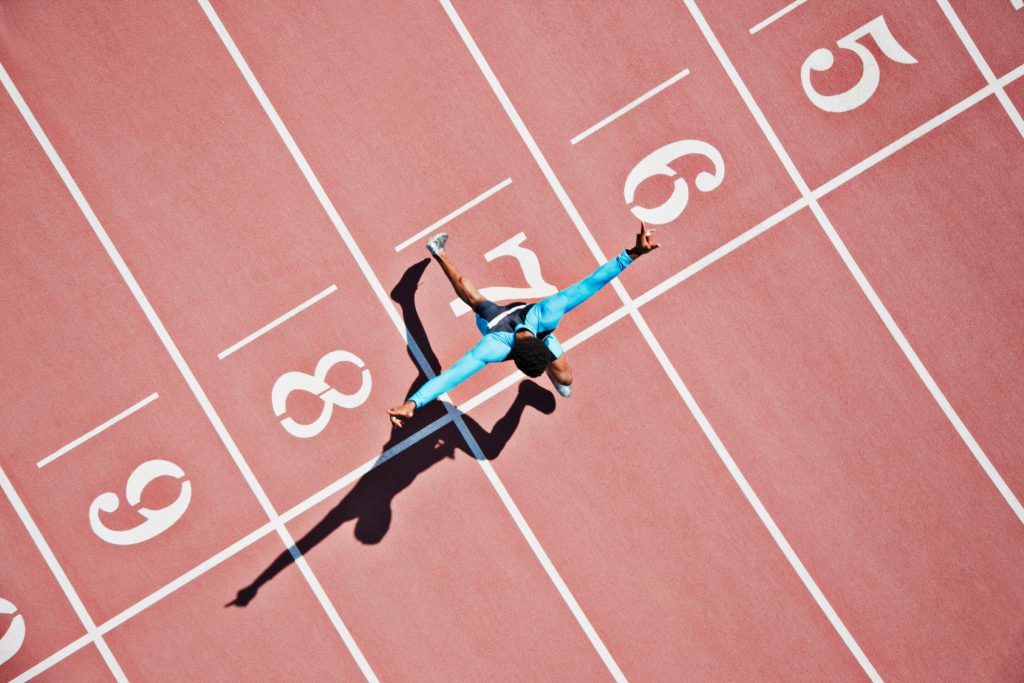“Entrepreneurship as an Olympic Athlete: How to Do It”
Entrepreneurship is like top-level sports, as you know very well. The Olympic Winter Games have just ended. The Netherlands returned with a whopping 17 medals, including 8 gold medals. This puts us in a fantastic sixth place.
What are the ingredients for achieving Gold? And what do we see in the winners that we, as entrepreneurs, can learn from? As you may know, my sports background and interest in sports often lead me to draw parallels. The ‘transfer’ of experiences from sports to entrepreneurship and leadership…
It’s no coincidence that the title of my first book is “My Best Team Ever! In 7 Steps to Golden Leadership,” with a foreword by Maurits Hendriks, technical director of NOC*NSF.
Entrepreneurship as an Olympic Athlete:
-
Your ‘WHY’ is Crystal Clear
Just like an athlete, an entrepreneur must know very well why they want to embark on entrepreneurship and what the ultimate goal is. The clearer they have that in mind, the more focus it brings, the more obstacles can be overcome, and the better they can deal with major stress factors. In my 2nd book – “In 10 Steps: Control Growth & Volatility. Aim for a Better Business Result and Avoid Costly Pitfalls,” I pay a lot of attention to this in the first chapter. Why do you do what you do, as an entrepreneur, as a person? What do you want to get out of it? The answers I get are very diverse. It could be, for example: achieving financial independence, leaving something for my children, I believe in this product and want to market it worldwide, the need to prove oneself. The clearer these aspects, the better and easier a athlete or entrepreneur stays on course.
-
Having Goals in Sight
What is your goal? What are the goals? Do you want to peak permanently (is that possible?), do you want to set a few goals per year? Per quarter? And what suits you? In speed skating, for example, we see that Sven Kramer set multiple goals throughout the season. That’s how he became a triple Olympic champion in his most successful years, a nine-time world champion allround, and a ten-time European champion. In addition, he is also eight times world champion in the 5000 and five times in the 10,000 meters. Irene Wüst made history as the only athlete with an Olympic title in 5 consecutive Winter Olympics. She had set the Olympic Winter Games as a strong goal. And if you don’t reach the goal? Do you punish yourself? Does your mentor, your coach, see it as failure? No, not reaching a goal is not failure. It’s definitely a bummer, but it’s the art of learning, evaluating, and then improving performances.
“You will have to create an action plan, with the efforts you need to make to make your dream come true.” – Rob Veer, running coach –
-
Mindset is Key!
There’s a lot of talk about mindset, but it’s still underrated: in sports and in business. Working on a good positive mindset to stay ‘on track’ deserves permanent attention. All athletes have trained to the maximum and master the technique. But that last bit – just getting gold or just missing it – often depends on the right mindset. A mindset to get and stay in a supportive and powerful state of mind when you have to peak. But also to let go of limiting factors that negatively influence our mindset. Think of the ‘opinion factory’ inevitably linked to top sports. That’s something you also have to learn to deal with and be trained in. Entrepreneurship is top-level sports, which is why I work with entrepreneurs and leaders on an optimal mindset for further growth. In sports, I see more and more athletes who succumb to pressure due to insufficient attention to a good mindset.

-
Tapering
The elastic band cannot always be tense or stretched. In addition to the effort of training, total relaxation at the right moments is an essential part of performance. In sports, this is called “tapering.” Planned rest for the body, for the muscles. There’s a lot we can learn from this in the business world. Entrepreneurs, but also employees, simply can’t always be “on.” In addition to peaking, deliberate and targeted relaxation is a prerequisite for scoring. And it’s the only way to sustain performance for longer periods. It’s no coincidence that I always pay attention to tapering with entrepreneurs. How do you relax?
-
Peaking at the Right Moment
Everything revolves around peaking at the right moment. Here, everything comes together: mindset, tapering, and strong goals. Also in Beijing, Irene Wüst managed to peak at the right moment. It’s her trademark. Getting the most out of yourself at the right moment.
Nico van Yperen, professor of sports psychology, says: “It’s about really preparing optimally and then, when it matters, minimizing performance loss as much as possible.” Indeed, the loss. A human cannot perform better than what’s in them, but they can perform worse. And that happens quite often. In athletes who just don’t play a good match in the final, but also in driving test candidates who suddenly start to doubt at the first intersection. There are many reasons for this, which mental coaches of top athletes all categorize under one term: distraction.
-
Scenario Thinking: From Silver to Gold
So what’s the deal here, when we look at that last step? Besides mindset, this is about scenario thinking and training all possible scenarios that can occur in a competition. There can be many different scenarios. Knowing, experiencing, and






